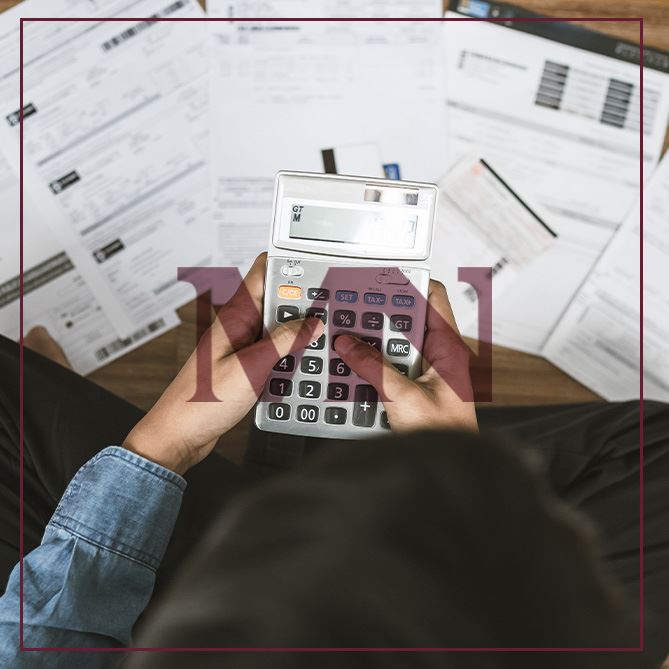
Filing for Bankruptcy in Knoxville
Understanding Bankruptcy Laws in Tennessee
The state of Tennessee follows federal bankruptcy laws, which means proceedings will largely adhere to the national Bankruptcy Code. However, Tennessee law influences certain exemptions and procedures within the bankruptcy process that can be notably different from those in other states. For instance, Tennessee allows individuals to claim a homestead exemption up to $25,000, reducing the risk of losing your home.
Familiarity with these specific provisions can significantly impact the strategy and outcomes of your filing. At the Law Offices of Mayer & Newton, we help clients navigate these local nuances, ensuring that they benefit fully from available exemptions while making informed decisions about their financial future.
Moreover, the Eastern District of Tennessee, where Knoxville is located, handles bankruptcy cases at the regional U.S. Bankruptcy Court. Knowing which courthouse to file in and understanding its unique processes can prevent unnecessary delays. Our experienced attorneys at Mayer & Newton offer personal guidance through the complexities of Knoxville’s local court systems, providing peace of mind to clients seeking debt relief.
Certified Bankruptcy Attorneys Serving East Tennessee
Many debtors are facing the overwhelming burden of debts that they never have enough money to pay off. Unpaid debts can lead to several consequences, such as home foreclosure, repossession, wage garnishment, creditor harassment, civil lawsuits, and more. One solution for individuals who cannot repay their debts and are in danger of suffering from any of these repercussions is filing for bankruptcy.
While there are several chapters under the Bankruptcy Code, the two most common types of bankruptcy are Chapters 7 and 13. At The Law Offices Of Mayer & Newton, our certified bankruptcy lawyers in Knoxville have filed over 50,000 cases in the Eastern District of Tennessee. We have the knowledge and experience to help you make an informed decision about whether bankruptcy is right for you and which chapter you should file for.
Bankruptcy often provides a vital lifeline for individuals and businesses trapped in financial distress. Understanding the nuances between Chapter 7 and Chapter 13 bankruptcies is essential for determining the most appropriate course of action. Chapter 7, also known as liquidation bankruptcy, allows debtors to discharge a significant portion of unsecured debts, relieving them from overwhelming financial burdens. This route is typically faster, taking a few months to complete, but certain eligibility requirements apply. Conversely, Chapter 13 involves reorganizing debts into manageable payment plans, allowing filers to retain their assets while repaying creditors over 3 to 5 years.
Understand, bankruptcy is not right for everyone, which is why it is crucial that you speak with our experienced legal team before filing for bankruptcy. In addition, the filing process is complex, and it is important to make sure that things are handled correctly. Many people are denied on their bankruptcy applications because they did not have a skilled legal advocate guiding them. Don't let this happen to you.
Call (865) 328-7993 now for a free consultation. Our experienced, well-trained staff of paralegals is ready to assist you and can make an appointment that's convenient for you.
Chapter 7 vs. Chapter 13 Bankruptcy
It is important to understand the difference between two of the most common forms of bankruptcy, Chapter 7 and Chapter 13. Let's begin with Chapter 7. This type of bankruptcy is often referred to as “straight bankruptcy” or “liquidation.” It primarily involves discharging or eliminating your unsecured debts.
Chapter 7 offers distinct advantages, such as quickly freeing individuals from the stress of unmanageable debt. This method is particularly useful for those without significant assets, as it allows for a clean financial slate without overwhelming monthly payments. On the other hand, if maintaining certain properties like a home or car is a priority, Chapter 13 bankruptcy might be a more suitable choice.
Chapter 13 enables individuals to restructure their debt while protecting their assets, making it an ideal solution for those with a steady income capable of adhering to a repayment plan. Both chapters provide relief, but the choice of which one to file depends on each individual's unique financial circumstances and long-term goals.
The benefits of Chapter 7 bankruptcy include:
- It provides the ability to wipe out unsecured debt, including credit card bills, utility bills, advances on paychecks, and personal signature loans
- It allows individuals to obtain debt relief relatively quickly, sometimes in as little as three months
- It allows the debtor to keep assets that qualify as “exempt”
- It does not involve monthly payments made to a trustee
Chapter 13, on the other hand, involves restructuring one's debts. Filers can consolidate their debt into a single monthly payment over a three to five-year period. After successfully completing the repayment plan, all remaining debts will be discharged.
Some of the advantages of filing for Chapter 13 include:
- Repay your debts over a longer period
- Be required to pay less than owed
- Keep your assets as you repay your debts
- Stop creditor harassment
- Delay or avoid home foreclosure
- Prevent repossession of your property
How Much Does It Cost to File Bankruptcy?
The cost of filing bankruptcy in Tennessee includes various fees and expenses. These costs may vary depending on the complexity of your case and the chapter of bankruptcy you're filing. Some things to consider regarding the cost of filing bankruptcy are fees for the filing itself as well as hiring an attorney.
- Bankruptcy fees:
- Filing Chapter 7: $338.00
- Filing Chapter 13: $313.00
- Credit Counseling Course: About $50 - you may request a waiver before the session begins
- Debtor Education Course: Between $50 - $100, unless a waiver is granted
- Attorney fees:
- Hiring an experienced Tennessee bankruptcy attorney is highly recommended to navigate the process effectively. Attorney fees can vary based on factors such as the complexity of your case and the attorney's experience and reputation. It is best to consult with an attorney for a personalized assessment of your situation and an estimate of their fees.
The investment in securing competent legal representation usually outweighs the risks and potential financial pitfalls of proceeding without counsel. Understanding the financial scope of filing is an integral part of the decision-making process. Individuals should be prepared for upfront costs, balancing them against the long-term financial liberation potential that bankruptcy can offer. By carefully evaluating all charges involved and consulting with a bankruptcy attorney, individuals can develop a clearer budget and plan effectively for their future financial health.
Navigating Knoxville's Bankruptcy Court
Filing for bankruptcy in Knoxville involves interacting with the Eastern District of Tennessee's U.S. Bankruptcy Court, which oversees cases in the area. Understanding the operations of this court system and the specific procedural requirements that may apply can significantly influence the success of a bankruptcy filing.
The process typically begins with filing a petition, followed by court appearances and meetings with creditors. Having an attorney familiar with the local court's specific practices and expectations can provide a strategic advantage, streamlining the process and avoiding common pitfalls.
Moreover, Knoxville residents should be mindful of particular local practices, such as the assignment of trustees. Trustees play a pivotal role in overseeing the distribution of assets and ensuring compliance with bankruptcy laws. The Law Offices of Mayer & Newton equips clients with a local insight that is grounded in years of direct experience interacting with these trustees, fostering smoother proceedings and addressing any compliance issues proactively.
How Many Times Can You File Bankruptcy?
In Tennessee, there is no limit to the number of times you can file for bankruptcy. However, the timing between filings and the type of bankruptcy you previously filed can affect your eligibility for certain types of bankruptcy relief.
How Much Time Between Bankruptcies?
The time to wait between filing bankruptcies depends on the type of bankruptcy you filed previously and the type of bankruptcy you are applying for now. The timeframes can also vary based on the specific circumstances of your case and the bankruptcy laws in your jurisdiction. To be sure that you are waiting on the correct timeframe, be sure to get in touch with a skilled attorney near you at The Law Offices Of Mayer & Newton.
Common timeframes between bankruptcies:
- If you previously filed for Chapter 7 bankruptcy and received a discharge, you must wait 8 years from the date of your previous filing before you can file for Chapter 7 again and receive another discharge.
- If you previously filed for Chapter 13 bankruptcy and received a discharge, you must wait 6 years from the date of your previous filing before you can file for Chapter 7 and receive a discharge. However, you may be eligible to file for Chapter 13 sooner if you are seeking a discharge of your debts.
- If you previously filed for Chapter 13 and your debts were discharged, you must wait 2 years from the date of your previous filing before you can file again and receive another discharge.
- If you previously filed for Chapter 7 and received a discharge, you must wait 4 years from the date of your previous filing before you can file for Chapter 13 and receive a discharge.
Please be aware that even if you are eligible to file for bankruptcy again, the court may scrutinize your case more closely and consider factors such as the reasons for your previous bankruptcy filings and whether there is a pattern of abuse.
Can I Apply for Bankruptcy?
Those who are facing financial difficulties and struggling to pay their debts can apply for bankruptcy. Bankruptcy provides a legal process for individuals to seek relief from their debts and obtain a fresh financial start. However, it is important to note that there are eligibility requirements and specific criteria that must be met to qualify for bankruptcy.
Applying for bankruptcy in Knoxville comes with specifics that may vary from other jurisdictions. Eligibility factors typically include meeting income requirements and ensuring your debt level falls within allowable limits. It’s crucial to get accurate advice on what applies to your scenario since misconceptions about eligibility can lead to delays or a rejection of your bankruptcy application. Consulting with proficient bankruptcy attorneys who understand local legislation can offer reassurance and precise guidance, improving the likelihood of a successful filing.
The eligibility criteria and the type of bankruptcy you can file for will depend on various factors, including your income, assets, and the nature of your debts. The two most common types of bankruptcy for individuals are Chapter 7 and Chapter 13.
To determine if you are eligible for bankruptcy and which type of bankruptcy is most suitable for your situation, it is advisable to consult with a bankruptcy attorney. They can evaluate your financial circumstances, explain the bankruptcy process, and guide you through the necessary steps to apply for bankruptcy.
Get in Touch with The Law Offices Of Mayer & Newton
Here, we offer free consultations to discuss your bankruptcy options. With over 50,000 cases filed, we have extensive experience in helping individuals and businesses navigate bankruptcy proceedings. We understand the financial strain that bankruptcy can cause, which is why we offer $0 down for Chapter 7 and Chapter 13 cases. Our goal is to provide accessible and affordable legal services to those in need.
When you consult with us, we can provide a comprehensive breakdown of the costs involved in filing bankruptcy and explain our payment options. Our team is dedicated to guiding you through the bankruptcy process and helping you achieve a fresh financial start.
Choosing a law firm with our commitment ensures that you not only receive quality service but also benefit from a deep connection to Knoxville's legal environment. Our familiarity with the local courts and trustees allows us to efficiently navigate procedural requirements, minimizing stress and uncertainty for our clients. Reach out today to begin redefining your financial future under the care of a team devoted to your recovery.
Please note that it's important to consult with an attorney for the most accurate and up-to-date information regarding bankruptcy filing fees and costs in Tennessee, as they may change over time.
Call (865) 328-7993 now for a free consultation. Our experienced, well-trained staff of paralegals is ready to assist you and can make an appointment that's convenient for you.
Frequently Asked Questions
What Happens After Filing Bankruptcy in Knoxville?
After filing for bankruptcy in Knoxville, the initial step involves an automatic stay, which halts all collection activities, giving you breathing room. You will be assigned a case number and trustee who will manage your case. Within weeks, a meeting of creditors, often referred to as a 341 meeting, will take place. This meeting, orchestrated by the trustee, allows creditors to pose questions about your financial situation, though they rarely attend. It's imperative to attend this meeting with your attorney to address any queries accurately.
Once the meeting is concluded, assuming there are no objections, the discharge process will proceed, typically finalizing within 3-6 months for Chapter 7 cases. Chapter 13 will follow its structured repayment plan over a set time frame. Having an attorney through this process assists in maintaining timely compliance and taking full advantage of exemptions that Tennessee law permits. It’s crucial to remain responsive to any court correspondence and attend all required meetings to ensure a smooth path to discharge.
Can Filing Bankruptcy Stop Foreclosure in Knoxville?
Filing for bankruptcy can effectively halt foreclosure proceedings, providing a crucial period in which to reorganize finances and catch up on missed payments through a Chapter 13 plan. The automatic stay, which becomes effective immediately upon filing bankruptcy, is a powerful tool that suspends all foreclosure activities. For those facing imminent foreclosure in Knoxville, acting swiftly to file can make a significant difference.
In Chapter 13 bankruptcy, not only is the foreclosure process stopped, but a repayment plan is established, allowing homeowners to pay arrears over 3 to 5 years while keeping up with current monthly mortgage payments. This arrangement gives Knoxville residents a viable path to retain their homes, especially vital in neighborhoods where property values are stabilizing or increasing. Consulting with a bankruptcy attorney at the earliest indication of financial difficulty can preserve options and facilitate better planning ahead of any critical deadlines.
Is It Possible to Keep My Car in Bankruptcy?
Whether you can keep your car when filing for bankruptcy often depends on multiple factors, including the type of bankruptcy filed, the equity in the vehicle, and whether you're current on car payments. In Chapter 7 bankruptcy, Tennessee allows certain exemptions that protect personal property, including vehicles, up to a specified amount. If the equity in your car is below this threshold, you may retain ownership free of past debt obligations.
For individuals filing Chapter 13, vehicles can be retained as long as payments are included in the restructured debt plan. This provides an opportunity for debtors to catch up on missed payments and avoid repossession. A strategic discussion with our bankruptcy attorneys will clarify these options while emphasizing a plan that aligns best with your financial situation. At Mayer & Newton, we prioritize preserving not just assets but also your peace of mind, crafting solutions that keep you mobile and on the road to recovery.
Meet Our Staff

Client Reviews
Hear It From the People We Have Helped-
"I only had the pleasure of working with this office for a couple short years. These were some of the hardest years of my life and they helped tremendously with easing some of my burdens. This office ..."Kyle Gartman
-
"If you have any questions any member is quick to get back to you and ensure you are taken care of. I went in with false pretenses of bankruptcy and they pointed me in the right direction, extremely ..."
-
"They are very professional and always answered any questions that we had. would recommend this office for any help that you need. thanks again for everything"Mary Neal
-
"Very happy client. The attorneys and staff went above and beyond to help me resolve my issues. They were polite, understanding, and passionate about my case. They always had my interests in mind, ..."Casey
-
"They were able to help us to easily navigate the bankruptcy process, they were kind and knowledgeable, and treated us with dignity through a process that can be extremely distressing. John Newton is ..."Helen Carlyle
Why Choose Our Firm?
The Difference is Clear

-
$0 Down for Chapter 7We charge zero legal fees to retain our firm to represent you in a Chapter 7.
-
$0 Down for Chapter 13We charge zero legal fees to start a Chapter 13 case.
-
Board Certified Bankruptcy AttorneysOur attorneys are among the most knowledgeable in East Tennessee and are Board Certified Bankruptcy attorneys.
-
Caring & EffectiveWe have experienced attorneys and well-trained staff to ensure your case is handled effectively and with care.
-
Over 50,000 Cases FiledWe have successfully filed over 50,000 cases in the Eastern District of Tennessee.
-
Affordable & FlexibleWe offer free consultations and take online payments for your convenience.




